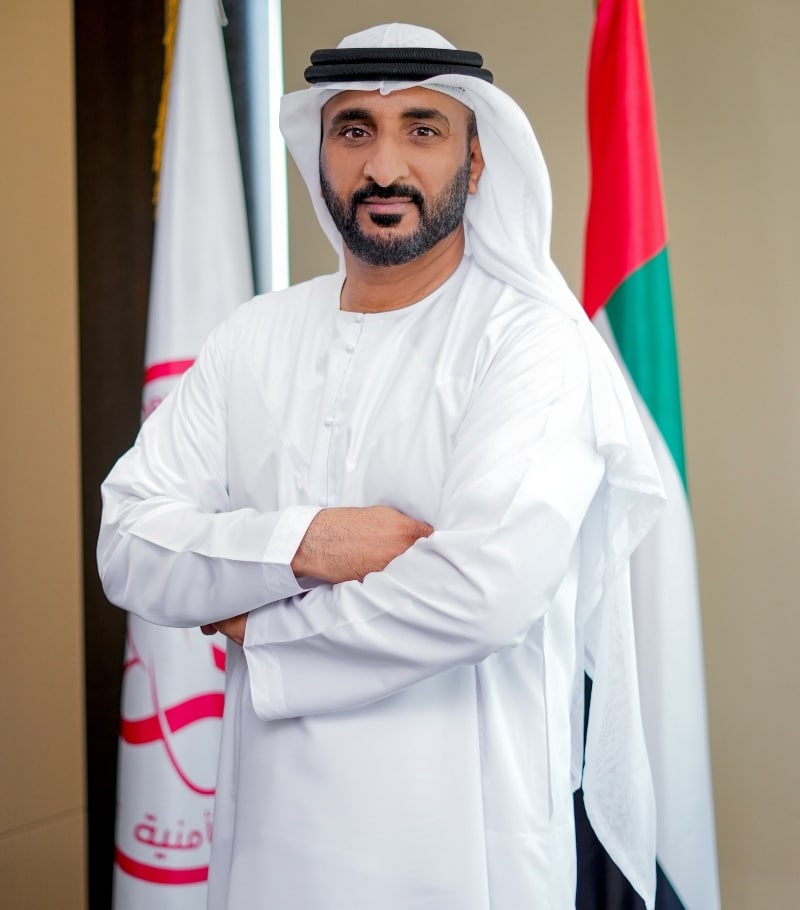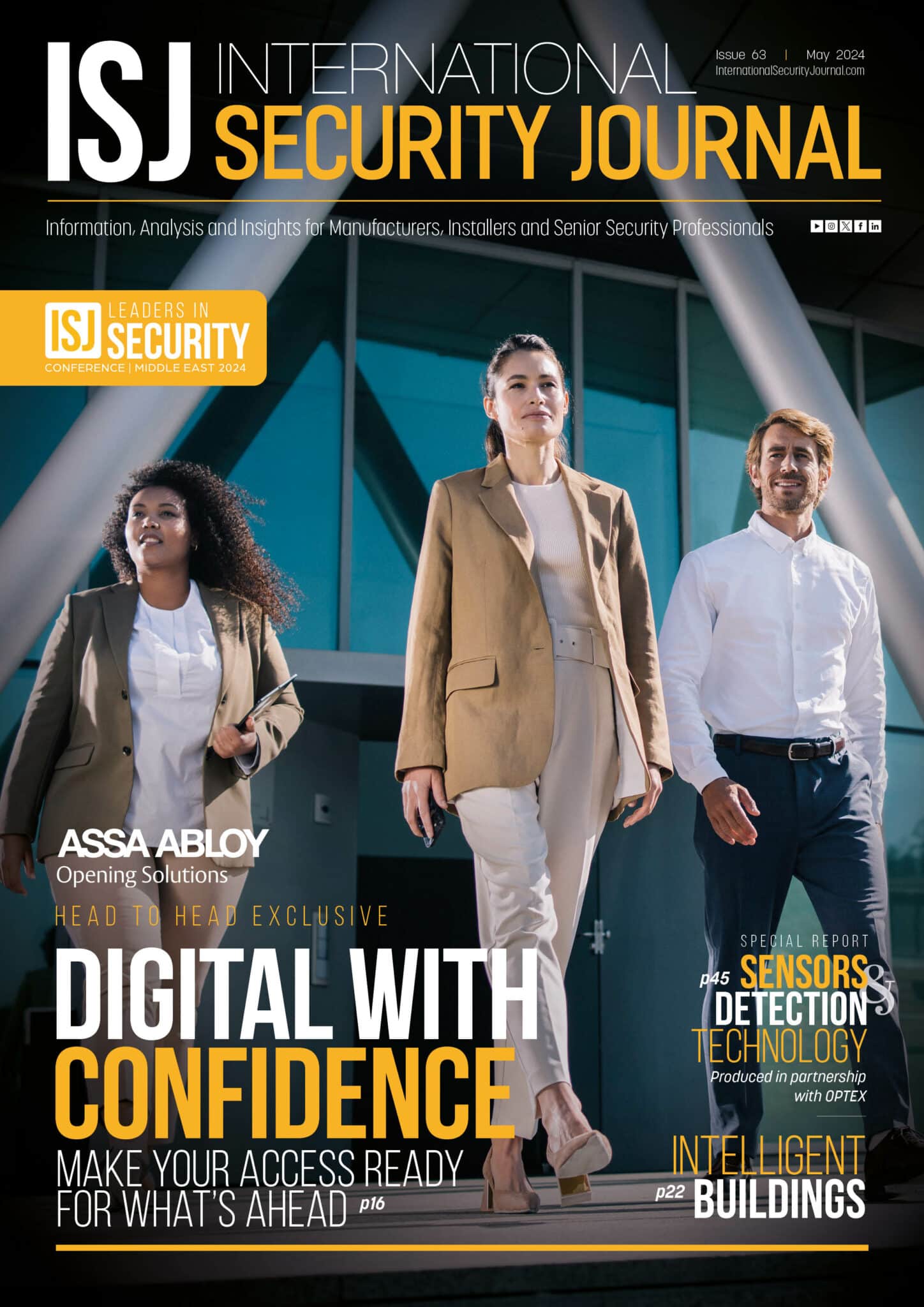SIRA: Maintaining security, safety and peace in Dubai


James Thorpe
Share this content
International Security Journal speaks exclusively with His Excellency Khalifa Ibrahim Al Saleis, Executive Director, Security Industry Regulatory Agency (SIRA).
With increasing security threats and economic fluctuations that contribute to raising the crime rate, the private sector faces great challenges in ensuring the safety and security of facilities and property.
In order to understand these challenges and the protection strategies adopted, International Security Journal conducted an exclusive interview with the Executive Director of SIRA in the Emirate of Dubai in the UAE, one of the safest cities in the world.
This agency is one of the first government institutions regulating the private security sector in the Middle East and worldwide.
Regulating this sector was initiated in the Emirate in 2000 and the agency’s fields expanded to include everything in the private security sector, in terms of guarding services, training, installation and the maintenance of security systems, in addition to security and safety procedures in dealing with dangerous and dual-use materials.
Moreover, the procedures for regulating this work are not limited to security service providers only, but also include users of these systems and services, ensuring the maximum benefit from securing this agency and facilities.
This promoted the governments of the region to do the same and regulate the private security sector, which is considered the strategic partner of the security authorities and the significant pillar of safety and field assistance as the first responder to emergencies businesses and vital facilities.
Article Chapters
Toggle- What are the most important challenges facing the private security sector at the present?
- What are the strategies adopted by the agency to address these challenges?
- What are the services provided by the agency to develop work in private security?
- What is the foreseeable future of security services with the rise of technology?
- How can we build a safer society and enhance the quality of life?
- What are the best practices to ensure optimal results when integrating security between the government and private security sectors?
What are the most important challenges facing the private security sector at the present?
The challenges vary with the increasing threats of criminal and terrorist crimes and the rapid technological transformations that bring new risks and threats not existed before or not addressed through the accepted methods, in addition to the variables and changing legal requirements in a world that is changing very quickly.
We also cannot forget the administrative and organisational challenges that include providing different services in a complex environment.
What are the strategies adopted by the agency to address these challenges?
We are part of the government and the private security system. Therefore, we monitor and analyse the security situation, crime rates and market and client needs to find customised solutions that meet their needs.
Moreover, we invest heavily in modern technology, such as surveillance and alarm systems, to ensure the effectiveness of protection operations with our partners from the government and private sectors.
We also invest in the Security Research Centre from the private sector and investigate, structurally and administratively, the legal requirements to be available and adopted in the local market to reflect in the proper functioning of security work and efforts to maintain security, safety and peace in the Emirate in particular and across the country in general.
What are the services provided by the agency to develop work in private security?
For the providers of security services, we essentially supervise the training of security and technical cadres by creating training curricula in line with the local market needs – within special standards and requirements for training centres – and then provide permits to these security cadres in accordance with legal conditions and requirements, ensuring the minimum provision of good services to the market.
“These systems have an important impact in promoting economic growth and supporting the investment environment.“
We also guarantee the availability of these services as a requirement for doing business in the Emirate, which enriches the security market with demand for these services.
We also support workers in the security sector through providing a communication network to transfer security knowledge and culture through many events, working to find encouraging advantages and incentives, attracting good cadres from them and encouraging innovations and creations in this field.
What is the foreseeable future of security services with the rise of technology?
In general, we expect that the security sector will witness remarkable developments as a result of technological advancements and continuous innovation across the industry.
The future of these services is likely to have many developments, including:
- Applications of AI – the use of AI technologies in security systems is expected to increase, as these technologies will allow intelligent identification of suspicious behaviours and analyse data more effectively
- Sensor technology and robotics – guards and security systems may see increased reliance on advanced technology in the form of sensors and robotics to enhance coverage and effective response
- Integration and interaction with smart devices – security solutions may be developed to be more interactive with smart homes and office devices, allowing for greater control and monitoring
- Advanced cyber-protection – due to increasing cyber-threats, enhancing cybersecurity is expected to be an essential part of future security services
- Innovation in environmental solutions – guards and security systems may be based on sustainable and environmentally friendly solutions, which supports environmental and sustainability efforts
How can we build a safer society and enhance the quality of life?
Technology plays a crucial role in improving security and protection through the application of advanced detection techniques and massive data analysis to identify unusual patterns.
In spite of the development of smart applications in the field of security and the entrance of AI into the world of security systems and solutions, we are also required to identify the risks inherent in this amazing and rapid development and think about cyber-protection that guarantees the highest levels of security and confidentiality.
Accordingly, we must prepare for future security threats through continuous training and the sharing of information about advanced attack patterns to develop advanced defence strategies.
Modern security systems are vital elements in building a safe and stable environment and play an effective role in maintaining public safety and reducing security risks.
In addition, these systems have an important impact in promoting economic growth and supporting the investment environment.
Electronic security systems directly enhance safety and security in society. They reduce the rate of crime and theft, contribute to maintaining public order and enhance confidence in society.
We can notice from statistics that places with effective security systems are experiencing a significant decrease in crime rates and security incidents.
It is also necessary to point out the positive psychological impact that these systems have on the population. Once they feel safe and protected, individuals can better focus on work and production, enhancing daily life and stimulating economic activity.
This, in turn, encourages investment and makes entrepreneurs and investors feel confident in the environment provided by these systems.
Moreover, it reduces losses resulting from crime and theft. According to studies conducted based on security reports, countries and cities that have improved their security systems have witnessed a relative decrease in crime rates by up to 20%. Studies have also shown that every one dollar spent on improving security systems can save five dollars in losses resulting from crime and theft.
Other studies demonstrate that companies which employed an electronic monitoring system have seen an increase in productivity by 15%-20% and stores have significantly reduced thefts and losses after installing monitoring systems, leading to an increase in profits by 25%-30%.
This provides a positive impact on customer experiences, as they feel safe and confident when they shop in stores that have reliable monitoring systems.
In addition, hotels and resorts that invested in improving surveillance systems have witnessed an increase in the rate of reservations by up to 20%, due to guests feeling safe and comfortable.
The use of modern surveillance systems also reduces security and guarding costs, which increases the net profitability of tourist facilities.
The utilisation of security systems in industrial facilities reduces work accidents and contributes to improving the safety of workers, which reduces the costs of accidents and injuries and improves companies’ records regarding safety, in addition to improving productivity and reducing maintenance and repair costs as a result of providing a safer working environment.
What are the best practices to ensure optimal results when integrating security between the government and private security sectors?
Increasing cooperation between the private and government security sectors is crucially important to enhancing comprehensive safety and protection.
This cooperation can be summarised in several factors, the most important of which are:
- Information sharing – exchanging information between the private and government sectors about security and public safety threats can contribute to improving responses and addressing challenges effectively
- A common regulatory and legal framework – the existence of a regulatory and legal framework that enhances cooperation between the two sectors by developing policies and legislation that increases cooperation and clarifies roles and responsibilities
- Training and skills exchange – enhancing cooperation through joint training programs and workshops that contribute to the transfer of skills and knowledge between the two sectors
- Trust and transparency promotion – building mutual trust between the two sectors can contribute to enhancing cooperation and encouraging sustainable partnerships
- Focus on common goals – identifying common goals and challenges between the two sectors and working on solving them together as a basic framework for increasing cooperation
- Cooperation in the field of research and development – supporting cooperation in the field of research and development to develop new technologies and strategies for counter-security threats

